Energy Consumption
As an energy-intensive industry, the chemical sector has played a pioneering role in enhancing energy efficiency, achieving a 48% reduction in energy consumption since 1990.
The chemical industry plays a crucial role in transforming energy and raw materials into products essential for other industrial sectors and final consumers. Over the years, the sector has dedicated significant efforts to enhance energy efficiency, focusing on reducing fuel and power energy consumption per unit of production. This commitment extends to optimising processes, including the construction of new facilities. Additionally, a notable portion of the energy used by the chemical industry as feedstock is stored in products and remains recyclable. Achieving further substantial improvements necessitates technological breakthroughs.
Enhancing energy efficiency in this energy-intensive chemical sector is not only a key economic success factor but also a pivotal tool for reducing greenhouse gas (GHG) emissions. This, in turn, supports the transition towards climate neutrality.
EU27 gas and electricity account for two thirds of total energy consumption
Total energy consumption* in the EU27 chemical industry by source, 2021 (%)
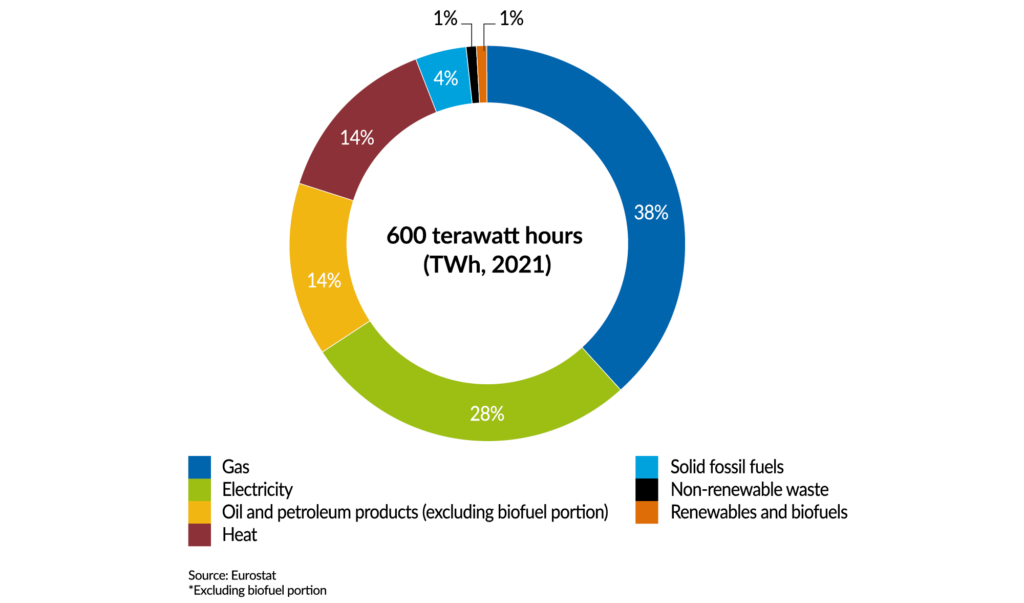
EU27 energy consumption falls 20% since 1990
Energy consumption in the EU27 chemical industry
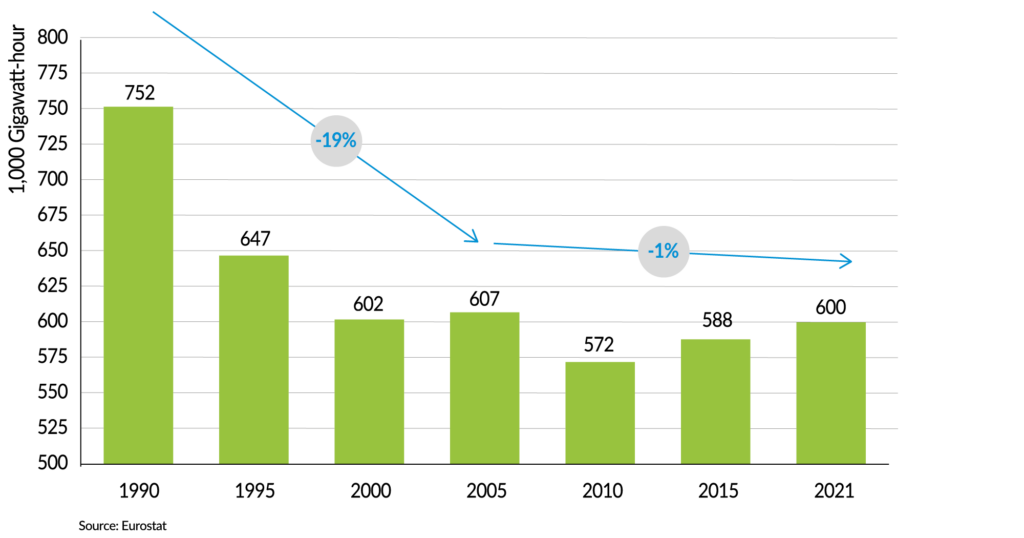
EU27 gas consumption falls 21% since 1990
Gas consumption in the EU27 chemical industry
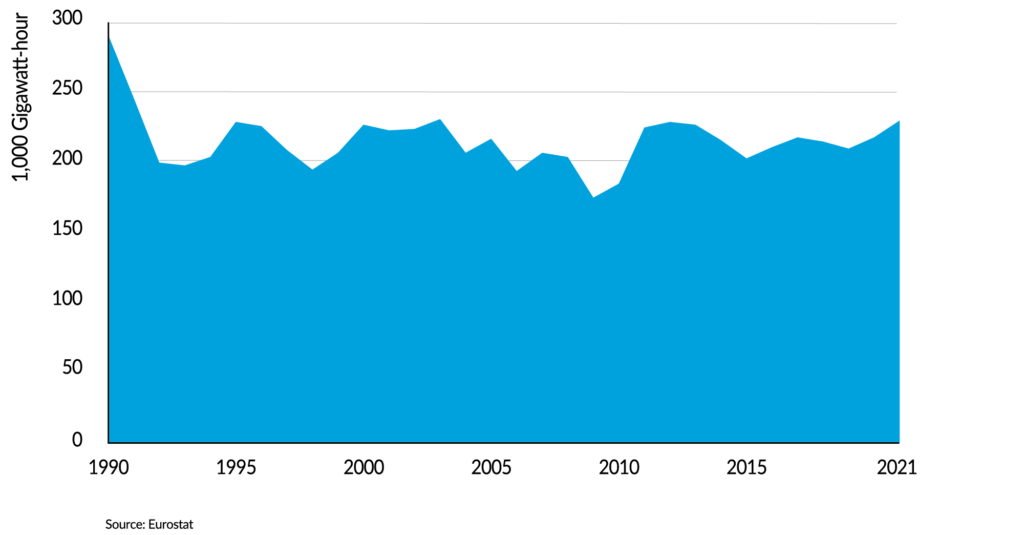
EU27 electrical energy consumption falls 14% since 1990
Electrical energy consumption in the EU27 chemical industry
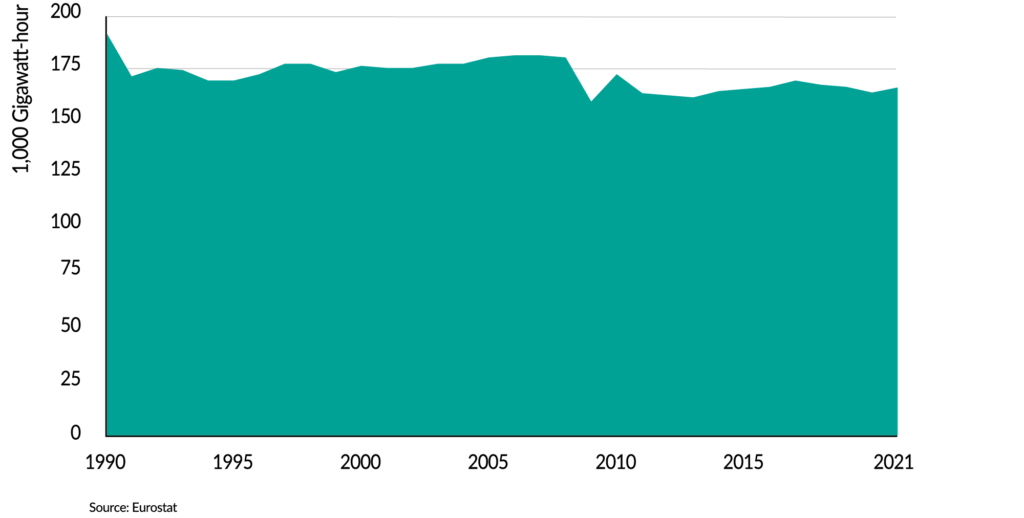
EU27 Total petroleum consumption falls 24% since 1990
Total petroleum products consumption in the EU27 chemical industry
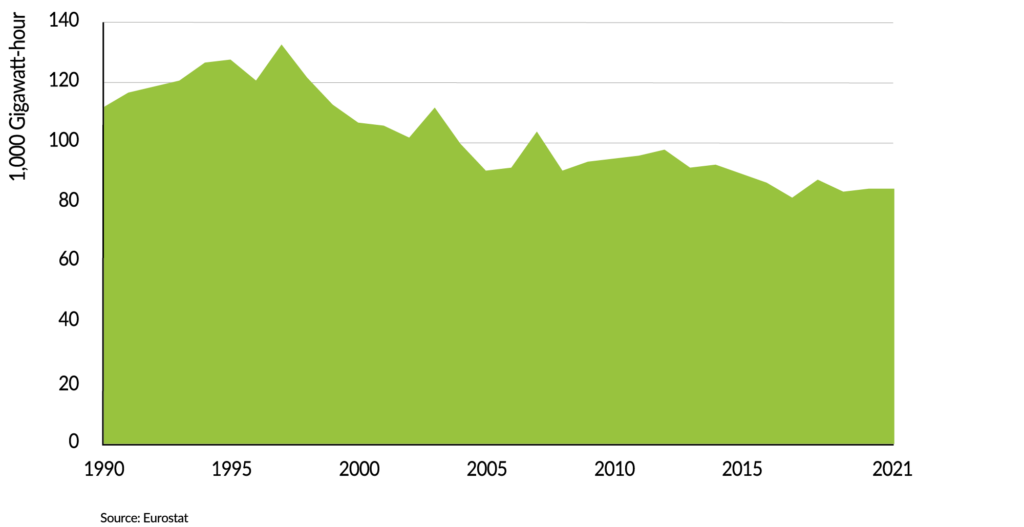
EU27 solid fuels consumption falls 69% since 1990
Solid fuels consumption in the EU27 chemical industry
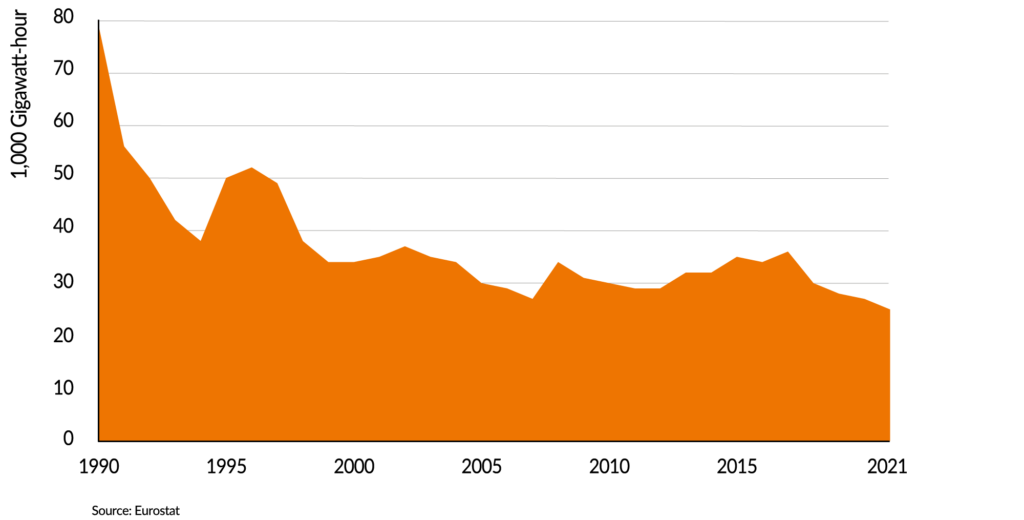
EU27 renewable energies consumption more than doubled
Renewable energies consumption in the EU27 chemical industry
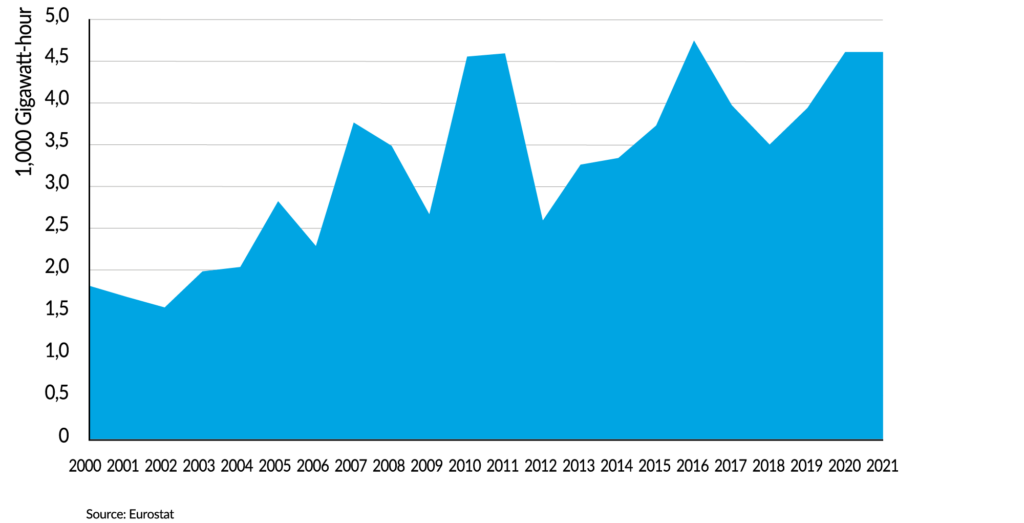
EU27 SPECIFIC ENERGY CONSUMPTION DROPPED BY 48%
Efficient use of energy in the EU27 chemical industry
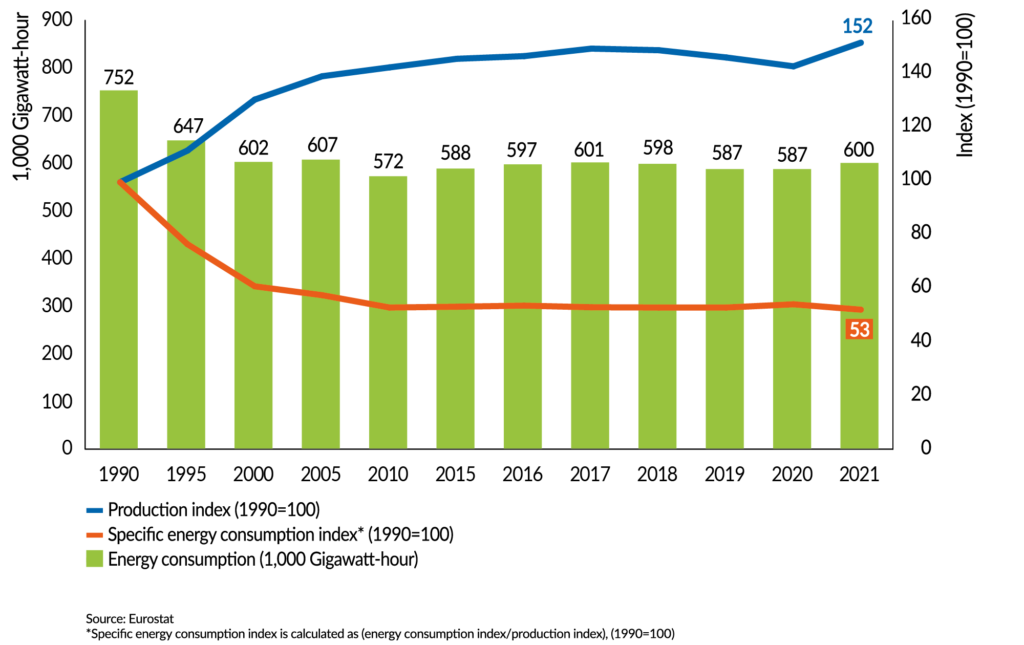
EU27 Chemicals performance is slightly higher than overall industry
EU27 specific energy consumption: chemicals vs total industry
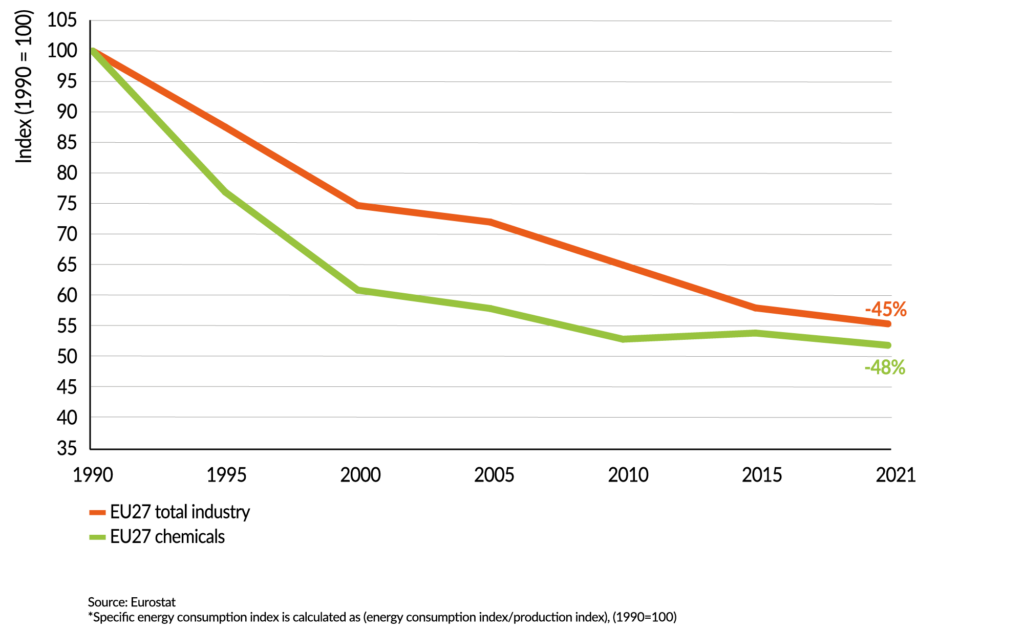
Navigate the other chapters
Profile – Trade Development – Growth And Competitiveness – Our Contribution To EU27 Industry – Capital & R&I Spending – Environmental Performance